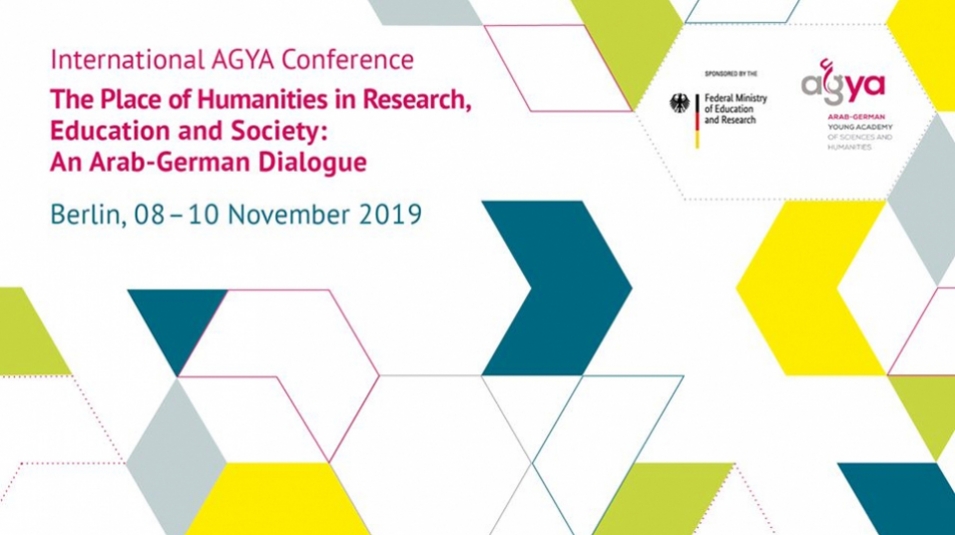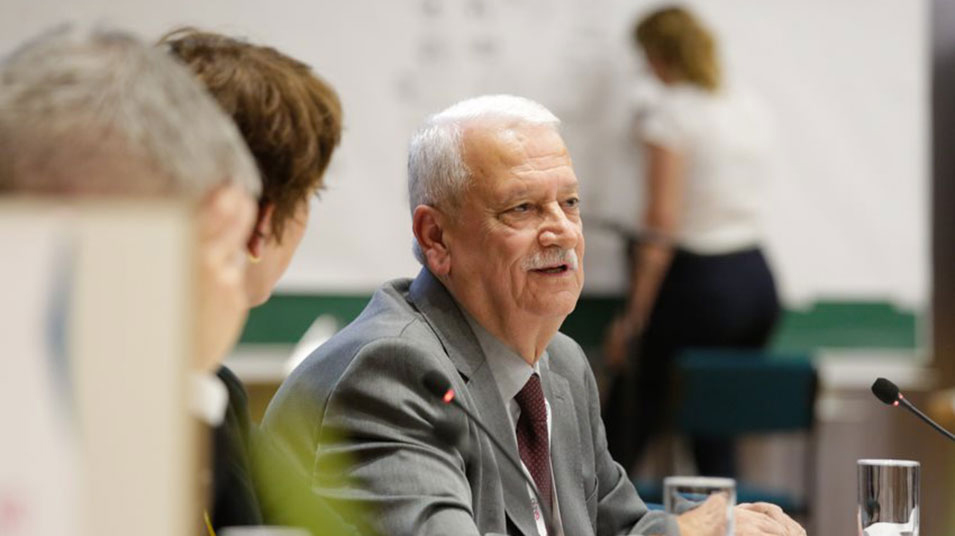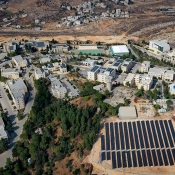Birzeit University president participates in AGYA conference, defines how sciences and humanities intertwine in Palestine higher education
Birzeit University president Abdullatif Abuhijleh participated in an international conference titled “The Place of Humanities in Research, Education and Society: An Arab-German Dialogue,” hosted by the Arab-German Young Academy of Sciences and Humanities at Free University of Berlin, Germany.
Conference participants explored what potential the study of the humanities offers in today’s world and which challenges the discipline is faced with, engaging Arab and German key players in multilateral dialogue.
Abuhijleh presented the opening statement of the conference in a special session with Günter Matthias Ziegler, the president of Free University of Berlin. Both Abuhijileh and Ziegler talked about the importance of connecting sciences with humanities in the 21st century.
Abuhijleh explained the linear relationship between the humanities and the applied sciences in Palestine and at Birzeit University in particular. He stressed on the university’s commitment towards providing quality education that engages students and faculty members in a combination of applied and social sciences.
“Our belief in the value of integrating knowledge and disciplines has been evident in our academic and research programs and entities,” Abuhijleh asserted. “For example, the university has recently inaugurated the Faculty of Art, Music and Design that combines academic and theoretical studies with practical training and performance. The Institute of Community and Public Health is another example where several disciplines intertwine, as it goes beyond the narrow biomedical determinants of public health and considers the social, ethical, cultural and economic factors as important aspects that affect the well-being of individuals and society,” he elaborated.
The president pointed also to the newly-launched linguistic search engine as an example of such integration between sciences, as it combines 150 multi-lingual lexica and a linguistic ontology for Arabic. Abuhijleh expressed his pride in the fact that Birzeit University has been able to build a comprehensive linguistic data graph that includes syntactic, morphological and semantic features and links these to other languages to better equip the IT industry with resources that are currently missing.
“Education and research in the humanities and in applied sciences have long been a critical foundation of our society,” Abuhijleh stated. “These activities are currently bringing together generations in the strive to understand the needs of our society with a wider and deeper perspective, one that is able to build our nation and its institutions.”
Abuhijleh participated also, as a keynote speaker, in one of the conference’s workshops where he talked about the future of German-Arab cooperation in the humanities, focusing on teaching humanities at universities and on the modern tools that can foster interactive, critical thinking and analysis.
The conference gathered academics and researchers from numerous Arab universities, including from Tunisia, Egypt, Lebanon, Syria, Iraq, the United Arab Emirates and Morocco. Participants explored ways to raise awareness of the relevance of the humanities; discussed examples of best practice in research, teaching and outreach to society; and explored new forms of collaboration in both research and teaching between Germany and the Arab region.








